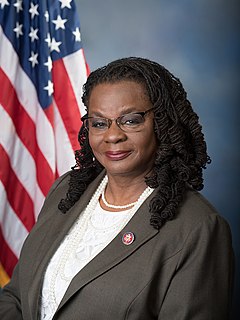A Quote by Warren Farrell
When birth control pills were available in Europe but not in the United States, American women created an uproar about how the unwillingness to make the pill available showed a contempt for the lives of women. When the Food and Drug Administration (FDA) released birth control pills with high dosages of hormones that were later found to be unnecessarily high, they were attacked for not caring about women enough to do the necessary tests.
Quote Topics
Related Quotes
You know, also I, you know, I was on those birth control pills and my breasts were like, they hurt... and, you know, it was like they blew up like. You know, they wouldn't fit into any of my dresses. I had to quit taking those birth control pills... This was like - I mean they were like, I thought they should be photographed really... So they were, for immortality. (On being photographed nude playing chess with Marcel Duchamp at Duchamp's 1963 retrospective at the Pasadena Museum of Art.)
There are so many issues that impact women. When we talk about prison reform, for example, women were [once] sterilized in women's prisons. When they were giving birth, they were asked to sign paperwork but they weren't even completely conscious of what they were signing. That sounds like something that would never happen in America, but it was happening, not just in America, but in [California], one of the most progressive states in the United States.
What's happened with the over-the-counter birth control issue is that the Democrats didn't see it coming. They think that they've got a monopoly on talking to women from the waist down. Anything that has to do with reproduction and birth control and abortion - they call it women's health, then they call it women's issues.
Women well understood how to restrict birth through timing of sexual intercourse, herbs and abortifacients. I suspect the focus on men's control of women as the means of reproduction came later, in the last five percent or so of human history, with the idea of children as property and labor. One needed to have as many as possible, never mind about women's health or mobility or brainpower. Women's freedom was restricted in order to make sure of the paternity and ownership of children.
In the United States, there's definitely some controversy about birth control in general, and I think we needed to split the debate and have people realize that we actually agree as a country about contraceptives. Over 93 percent of American women say they use contraceptives, and they feel very good about it.
In my opinion, the battles over birth control and Planned Parenthood are primarily neither political nor religious. This is an issue of equality for women. This is an issue of women's rights: Planned Parenthood is the most important private provider of reproductive health care for women in the United States.
The birth control pill, to a great degree, made possible the (hetero)sexual revolution. Yet those who developed oral contraceptives did not intend their work to promote what the majority of Americans at the time called "promiscuity." Doctors generally refused to prescribe the pill to women who were not married; the Supreme Court did not rule this practice unconstitutional until 1972.
Here in the United States, a study of nearly 700 women in California showed an increased risk of fetal death among babies whose mothers lived near crops when certain pesticides were sprayed. The largest risks were found among pregnant women exposed during the critical first trimester and among those who lived in the same square mile where pesticides were used.






































